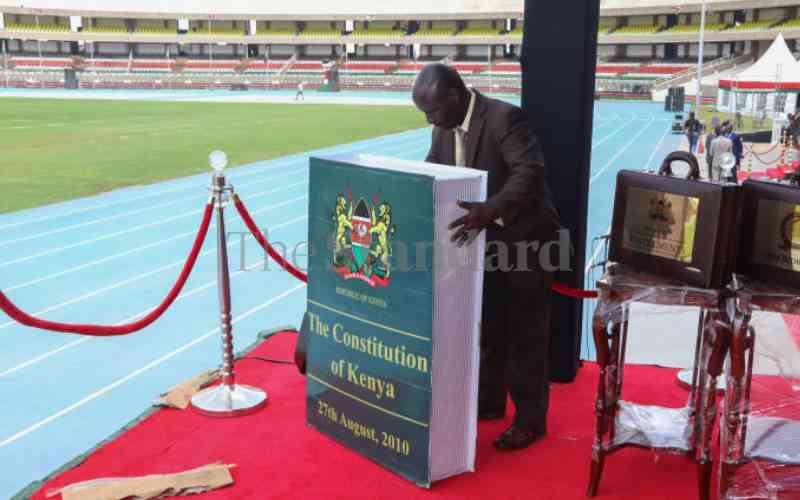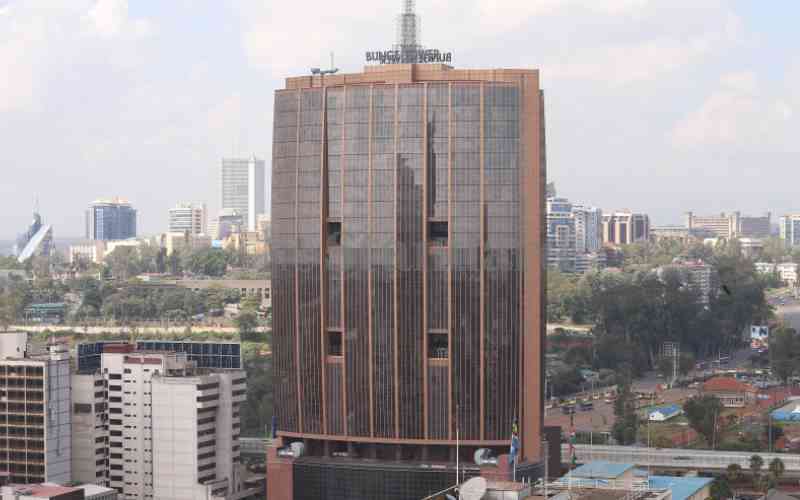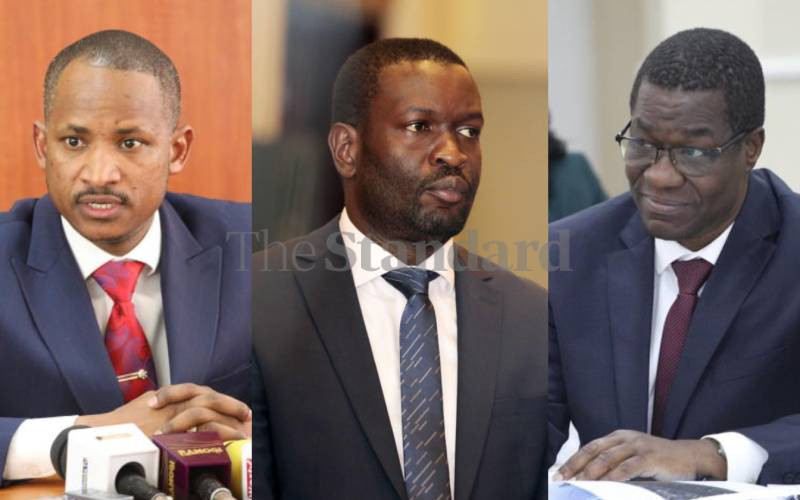By Alex Ndegwa
NAIROBI; KENYA: The tenure of the Tenth Parliament lapsed earning a place in history as the legislature that mid-wifed the new Constitution, but blemished its record by rewriting laws to subvert the charter.
As curtains came down on its life, the Commission for the Implementation of the Constitution branded “shameful” the last acts by MPs to award themselves hefty sendoff perks. Analysts say the Tenth Parliament takes credit as one that struck a compromise to end the two-decade struggle for a new Constitution but MPs compromised the quality of legislation.
MPs stand accused of revising electoral laws to subvert efforts to promote discipline in political parties, obstruct enforcement of strict integrity provisions and enacting a weakened anti-corruption legislation.
Coincidentally, the sinister actions were often executed under the cover of darkness after the House had voted to extend sitting time into the night.Some of the changes they made include legitimising party hopping and pushing nominations close to the March 4 vote, which exerts pressure on the Independent Electoral and Boundaries Commission.
ELECTORAL PROCESS
Commission for the Implementation of the Constitution chairman Charles Nyachae said the sequence was designed to ensure efficiency in electoral processes and enable IEBC discharge duties without undue pressure.
“Even if the General Election is conducted properly inefficiencies during the lead up to the poll undermine democracy and are contrary to what was intended by the framers of the Constitution,” Nyachae told The Standard.
Law Society of Kenya chairman Eric Mutua added the quality of legislation is wanting and likely to be declared unconstitutional by the courts.“About 50 per cent of legislation has constitutional challenges and explains why the laws are a subject of court cases,” Mutua said.
“Parliament acted selfishly on legislation touching on integrity, electoral processes, academic qualifications for candidates,” he added.The initial Elections Bill had provided that parties nominate candidates at least three months before elections, which meant primaries were to be completed in December.
And candidates were compelled to be members of their respective parties at least three months prior to nominations, which meant MPs should have listed with their new parties by October.This presented a dilemma because about 100 MPs who had defected from parties that sponsored them to Parliament stood to lose their seats.
Consequently, they ensured submission of party membership lists and party nominations is done on the same day- all deadlines shortened to at least 45 days to elections, which explains the flurry of nominations on January 17.
“When everything is lumped together it leads to inefficiencies that undermine democracy,” Nyachae added.
The MPs had intended to move the nominations much closer -30 days to elections- but the IEBC protested that would have left little time for them to receive nominations or resolve disputes.
ELECTIONS ACT
Attorney General Githu Muigai explained the amendment to the Elections Act to reduce the period of submission of party membership list from two months to 45 days was necessary to shield party hopping MPs.
“The reduction of this period will coincide with the expiry of the life of Parliament. It will ensure that there is no incongruence,” Prof Githu told a delighted House on December 27.
Then MPs endorsed the changes in the Statute Law (Miscellaneous amendments) Bill, which were designed to extend the period within which they can defect to other parties.
Stay informed. Subscribe to our newsletter
The lawmakers had previously extended the deadline for defections from October 17 to January 4.Nyachae said the series of amendments to the Elections and Political Parties Act were implemented to protect the interests of MPs.
“The actions are contrary to what was contemplated by the drafters of the Constitution, which is to instill discipline and democracy in political party processes,” Nyachae said.
CIC added it was unfortunate Parliament had dissolved before passing the Campaign Financing Bill, which Nyachae said the constitution required to be enacted by August.
“The consequence of the violation is that election campaigns are underway without the regulatory mechanism to enhance transparency,” Nyachae said.“The last act of the Tenth Parliament- passage of the retirement perks- is a violation of the Constitution because it usurps the role of the Salaries and Remuneration Commission. It is a shameful act,” Nyachae added.
MPs also ignored one of the recommendations by the Kriegler Commission, which probed the bungled 2007 election, intended to promote fair party nominations.The Mps also rejected attempts to legislate the periodic declaration of wealth of candidates, serving public officers and their spouses.
 The Standard Group Plc is a
multi-media organization with investments in media platforms spanning newspaper
print operations, television, radio broadcasting, digital and online services. The
Standard Group is recognized as a leading multi-media house in Kenya with a key
influence in matters of national and international interest.
The Standard Group Plc is a
multi-media organization with investments in media platforms spanning newspaper
print operations, television, radio broadcasting, digital and online services. The
Standard Group is recognized as a leading multi-media house in Kenya with a key
influence in matters of national and international interest.
 The Standard Group Plc is a
multi-media organization with investments in media platforms spanning newspaper
print operations, television, radio broadcasting, digital and online services. The
Standard Group is recognized as a leading multi-media house in Kenya with a key
influence in matters of national and international interest.
The Standard Group Plc is a
multi-media organization with investments in media platforms spanning newspaper
print operations, television, radio broadcasting, digital and online services. The
Standard Group is recognized as a leading multi-media house in Kenya with a key
influence in matters of national and international interest.








